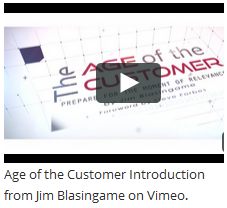For many years, I’ve made recommendations to small businesses with regard to their banking relationships called: The Blasingame Small Business Banking Rules-of-Thumb:
1st Blasingame Small Business Banking Rule-of-Thumb
A small business should have at least two banking relationships. If you’re turned down for a loan at one bank, you have another place to go where the person already knows about you and your business. One primary reason for this rule is because if only one banker knows you and your story, when he or she gets fired, promoted or otherwise leaves the bank, Murphy’s Law will dictate that it will happen when you most need a favorable banker.
2nd Blasingame Small Business Banking Rule-of-Thumb
At least one of the banking relationships should be with an independent community bank – that means locally owned and managed – and preferably your lead bank. I’m not picking on big banks, it’s just that most small businesses need to be given a little extra consideration for their character and past performance, which is typically not as forthcoming in a large bank.
Loan decisions made by large banks have two elements that may not give a small business this extra consideration:
1) The actual decision is made by a loan committee in another city, by people who probably don’t know the business owners
2) They rely heavily on what is called “credit scoring,” which is a computer program – each bank has its own proprietary model – that receives quantifiable information and produces a numerical “score”. If this week the bank has decided only scores of 18 or more are accepted, a loan request under 18 will likely be rejected. I’ve never heard of a credit scoring system that includes a variable for the applicant’s character.
Over the years, my Rules-of-Thumb have proven to be valuable to many small businesses. But since 2008, with all of the problems associated with big banks, those who have followed my advice were much less likely to find themselves without access to credit. This was because every independent community banker I spoke had emphatically said they had never stopped lending to their small business customers.
Recently, I talked with two presidents of independent community banks about working with small businesses and the health of the banking industry. First, Mike Menzies, who is not only the president of the Easton Bank and Trustin Easton Maryland, but he’s also the new Chairman of the Independent Community Bankers Association (ICBA). Mike’s also a long-time member of my Brain Trust. Secondly, there is Charles Antonucci, President of Park Avenue Bank in mid-town Manhattan.
They agreed with my advice.





